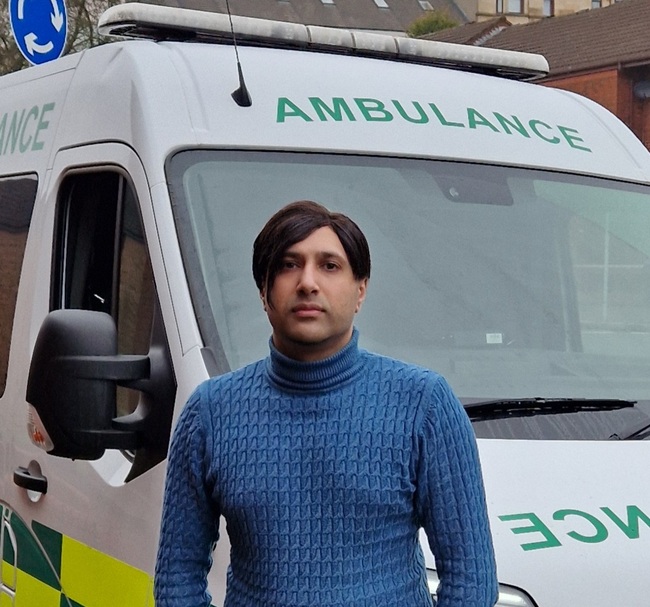Glasgow Academic’s Ambulance Mission to Gaza’s Frontline
A Glasgow-based academic is on a mission to steer an ambulance to the embattled region of Gaza, aiming to support civilians caught in the crossfire.
Umran Ali Javaid, who secured the vehicle in January, has received approval from Israel’s Coordinator of Government Activities in the Territories (COGAT) for the endeavour. He plans to deliver the ambulance to UNRWA, the key UN agency providing humanitarian assistance in Gaza, upon reaching the Rafah border.
Javaid, with a track record of dispatching 40 second-hand ambulances to war zones, including a notable journey to a Ukrainian hospital last September, is currently a master’s candidate in International Tourism and Event Management. He shared, “During war innocent civilians, especially children, need help and the ambulance can transport those that are injured and infants as it is equipped with a neo-natal ventilator.”
The bureaucratic hurdles for the ambulance’s entry into Gaza are considerable, involving coordination with both COGAT and the Egyptian Ministry of Foreign Affairs.
Next week, Javaid will embark on his journey from Glasgow, taking a ferry from Dover to France, then overland through Europe to Turkey, and finally by sea to Egypt’s Al Arish port, before driving to the Rafah border. This route has previously facilitated his aid efforts to Gaza before the onset of the current conflict.
The forthcoming shipping route from Cyprus to Gaza is a development Javaid welcomes for its potential to streamline aid deliveries.
Expressing his sorrow over the wartime suffering of civilians, Javaid noted, “Innocent civilians are always the first to be impacted by the horrors of war. It’s heartbreaking to see what is going on in the region.”
He lauded the capability of British ambulances in rendering vital medical aid, underscoring the desperate need for such support among hospitals and relief agencies. “That said, one ambulance can only help a few hundred people in the coming months which is a drop in the ocean compared to what is needed,” he concluded.

